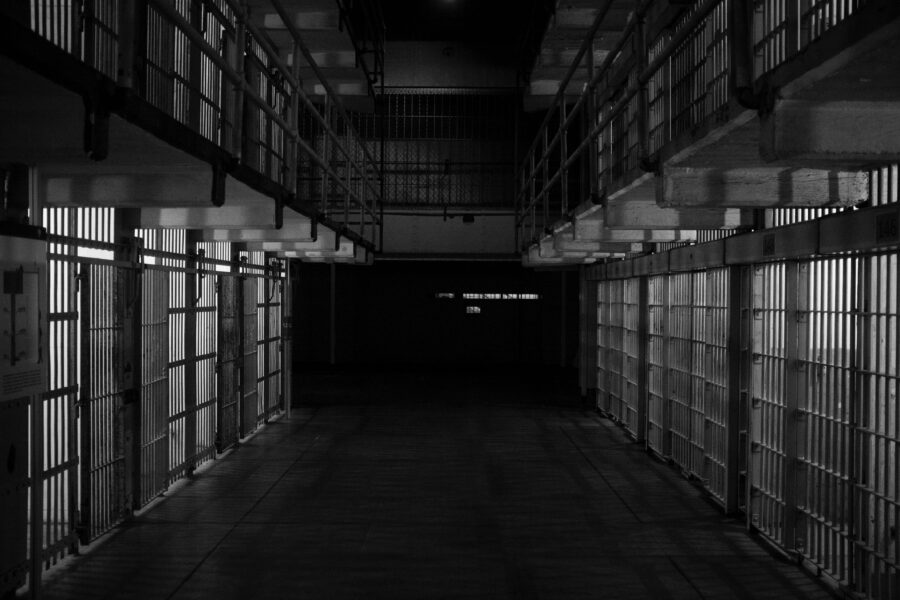
Alphonse “Little Al” D’Arco called it a “saga.”
This was back in 1993 when he testified in the racketeering trial of the leaders of the New Jersey branch of the Lucchese crime family. It was one of his first appearances as a government witness.
D’Arco was the acting boss of the Lucchese organization at the time and was making the point that the New Jersey wing of the family was a rogue group that the leaders in New York – this would have included the notorious Anthony “Gaspipe” Casso – wanted to eliminate.
Three of the defendants in the case, Anthony “Tumac” Accetturo and the brothers Michael and Martin Taccetta were part of what D’Arco described as a crime family within a crime family. They didn’t always play by the rules. Or more to the point, they played by their own set of rules.
This had already been demonstrated for all to see during a big federal racketeering trial a few years earlier in Newark. It was not the government’s finest hour. Twenty members and associates of the New Jersey group were on trial, including Accetturo, the Taccetta brothers and Tommy Ricciardi, all of whom were defendants in the 1993 case as well.
The federal trial lasted 21 months. It was a circus, reminiscent in many ways of the infamous “maxi trials” in Sicily that targeted hundreds of mob defendants at a time. There are many who believe the judge lost control of the proceedings early on.
One of the defendants, mob associate Giacomo “Fat Jackie” DiNorscio, acted as his own attorney. DiNorscio, who had ties to both the Lucchese organization and the Philadelphia mob, regaled the jury with what amounted to a stand-up comedy routine disguised as witness cross-examination. The friends and families of the defendants filled the courtroom on many days and the repartee during breaks was a cross between a wedding reception and a wake. Lots of noise and laughter. The comfort level of the defendants was amazing. They had literally made the courtroom their home. And after nearly two years of testimony, the jury, which clearly had picked up on the vibe, deliberated for only 14 hours before returning its verdicts.
Just fourteen hours after sitting through 21 months of testimony and evidence.
NOT GUILTY.
All defendants. All counts.
Bob Rudolph, a reporter for the Newark Star-Ledger, covered the trial and wrote a fascinating book entitled “The Boys from New Jersey: How the Mob Beat the Feds.” Sydney Lumet directed the movie based on that book. It was called “Find Me Guilty.” Vin Diesel starred as DiNorscio.
“The defendants celebrated their victory with unseemly swagger and contempt,” a defense attorney wrote recently, adding that the verdict, the book and the movie “were almost unbearable embarrassments to New Jersey law enforcement, both federal and state. The result was a conspiracy to get even with the Lucchese family by any means possible.”
The 1993 case in which both D’Arco and former Philadelphia crime family underboss Philip Leonetti testified was the “retribution vehicle” authorities used, say lawyers for Martin Taccetta.
The trial took place in state court in Toms River. Taccetta and the others were convicted of racketeering. He was also named as one of the assailants in the brutal, golf club beating of Vincent “Jimmy Sinatra” Craparotta. Craparotta was killed, authorities allege, in a dispute over mob control of an illegal poker machine operation run by his two nephews who were being forced to pay tribute to the mob.
Trial testimony indicated that both the Philadelphia crime family and the New Jersey wing of the Luchese organization claimed they were entitled to that tribute which amounted to $1,000 a month.
The testimony of both D’Arco and Leonetti, lawyers for Taccetta now claim, was tailored to fit the prosecution’s version of the case. Both mob informants, the defense alleges, lied on the witness stand. What’s more, they contend, authorities withheld information that would have proven Taccetta played no role in the Craparotta murder.
Martin Taccetta is the only defendant still in prison. He is serving a life sentence. He has steadfastly denied the charges and through this latest appeal has asked that his case be retried or his conviction overturned.
Following their convictions in the 1993 case, both Accetturo and Ricciardi began cooperating with authorities. The defense now alleges that both men initially provided information that would have exonerated Martin Taccetta in the Craparotta killing and raised serious questions about the credibility of Leonetti and D’Arco.
None of that information was given to the defense.
“D’Arco and Leonetti were not ordinary witnesses,” the defense contends. “They were serial murderers and professional criminals whose credibility was inherently suspect.”
The same, they argue in their appeal document, could be said of Ricciardi who, they say, eventually changed his story to fit the prosecution’s version of the case.
Prosecutors and investigators playing fast and loose with the rules in order to win a conviction? That’s the heart of the allegation. It is a common complaint from mob defendants and, sometimes, there is validity to the charge.
In Philadelphia, for example, the feds cut a deal with mob boss Ralph Natale in order to build a case against Joey Merlino. Merlino had become the face of the Philadelphia mob and his high profile had gotten under the skin of the feds. Christmas parties for homeless children. Free turkeys at Thanksgiving in the housing projects. Merlino as Robin Hood.
So the feds made a deal with Natale. He became a witness, although his testimony was riddled with inaccuracies. It wasn’t about the truth, it was about winning.
Taccetta’s lawyers say his situation was even more egregious. Authorities knew their witnesses weren’t telling the truth, they allege, yet they put them on the stand to tell a story that the prosecution wanted the jury to hear.
No one in law enforcement wanted a repeat of what had happened in Newark. This, the defense argues, was a win-at-all-costs prosecution, truth and justice be damned.
All of that, of course, is for an appellate court to decide.
Thirty years after the fact, the appeal filed by Taccetta’s lawyers is full of allegations of deceit, spite and revenge. It is a sometimes convoluted tale that exposes the ever-shifting alliances that were part of the New Jersey wing of the Lucchese crime family. It is a story that would have provided fodder for several episodes of The Sopranos, the classic HBO mob series that some thought was based on the DeCavalcante crime family, New Jersey’s only indigenous Mafia organization.
In fact, it is the New Jersey branch of the Lucchese organization that best reflects the chaotic, often violent but sometimes humorous life depicted in the HBO series.
Taccetta’s pending appeal in many ways repeats allegations made by convicted mobsters throughout federal and state court systems. There is an irony in all of this., of course. Mobsters who live a life in the underworld where lying, cheating and stealing are part of their everyday existence, where all social rules are ignored or flouted, find themselves under indictment and complain that law enforcement bends (or in some cases breaks) the rules to convict them.
It is human nature. It never shows up in a legal document or a courtroom argument, but there have been times when investigators and prosecutors have morally justified their actions by arguing that their targets have gotten away with murder in other cases. That may have been the thought process in the Toms River case. It is certainly what the pending Taccetta appeal contends.
During a trial lunch break one afternoon back in 1993, Michael Taccetta, Martin’s brother and co-defendant, sat in a sandwich shop near the courthouse in Toms River and waxed philosophically about the case against him and his co-defendants. They had beaten the feds in Newark but they were constantly dealing with law enforcement attempts to put them in jail. It was never going to stop, he said.
“It’s like Willy Loman said, ‘It comes with the territory,’” Taccetta said between bites of his sandwich.
A mobster quoting a classic line from “The Death of a Salesman.”
Thirty years later it is still the most succinct description of the case that has kept Martin Taccetta in jail.

